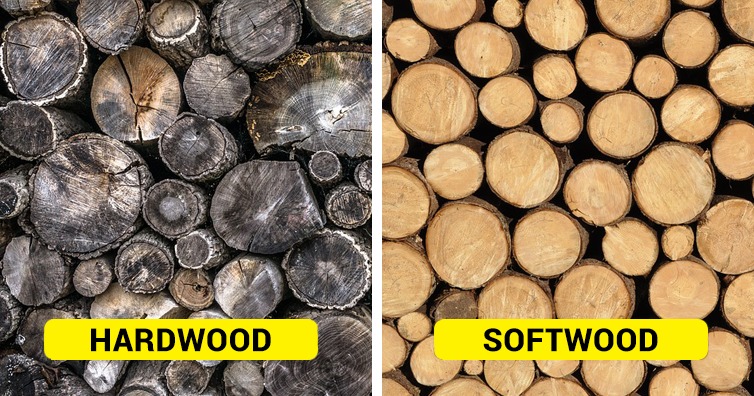Wood is usually classified into two main categories: hardwood and softwood. But have you ever wondered what’s the difference between these two definitions? What does make a specific piece of wood qualify as either hard or soft?
Well, surprisingly enough, the difference has nothing to do with the hardness of the wood. Hardwood does not necessarily means a more dense (harder) material neither softwood means a less dense (softer) material. It all has to do with the seeds of the tree it’s produced.
Here’s how it goes. (the article continues after the ad)
HARDWOOD
Hardwood is the wood that comes from a tree whose seeds are somehow covered, like in the case of fruits or shells.
SOFTWOOD
Softwood, on the other hand, comes from a tree whose seeds are not covered and when fell to the ground are left to the elements.
Trees that produce seeds without covering are technically called “gymnosperm”, the ancient Greek word for “naked seed”. Trees that produce covered seeds are called “angiosperm”, again taken from ancient Greek which literally means “vessel seeds”.
That being said, and even though the classification has nothing to do with a wood’s relative toughness, for the most part, softwoods are usually softer than hardwoods. But how you measure how hard a certain piece of wood is?
Well, the industry standard since 1906, is the Janka Hardness Test. Simply said, the Janka Hardness Test involves the average amount of force that’s required for some type of wood to “embed a .444-inch steel (1,12cm) ball to half its diameter”.
If you like what you read, then you will definitely love this one: This Is The Difference Between A ‘College’ And A ‘University’
Photo: jeonsango / Pixabay, ISchneider / Pixabay
Photoshop: I’m A Useless Info Junkie
Sources: FAQs / What is the difference between hardwood and softwood? | The Difference Between Hard And Soft Wood Has Nothing To Do With Hardness



